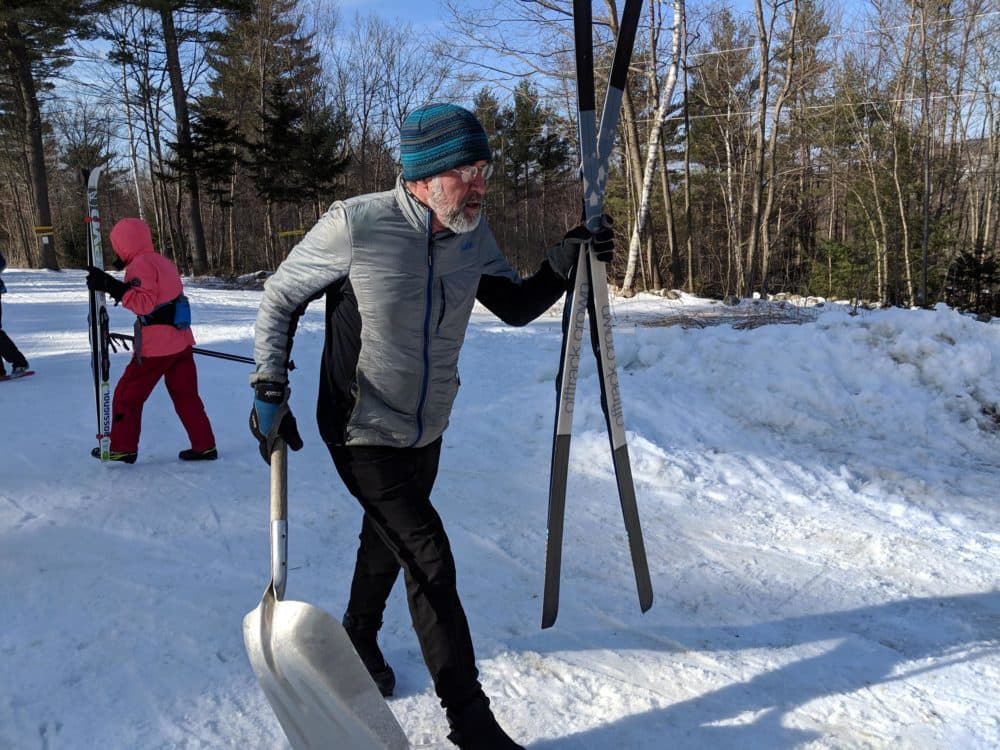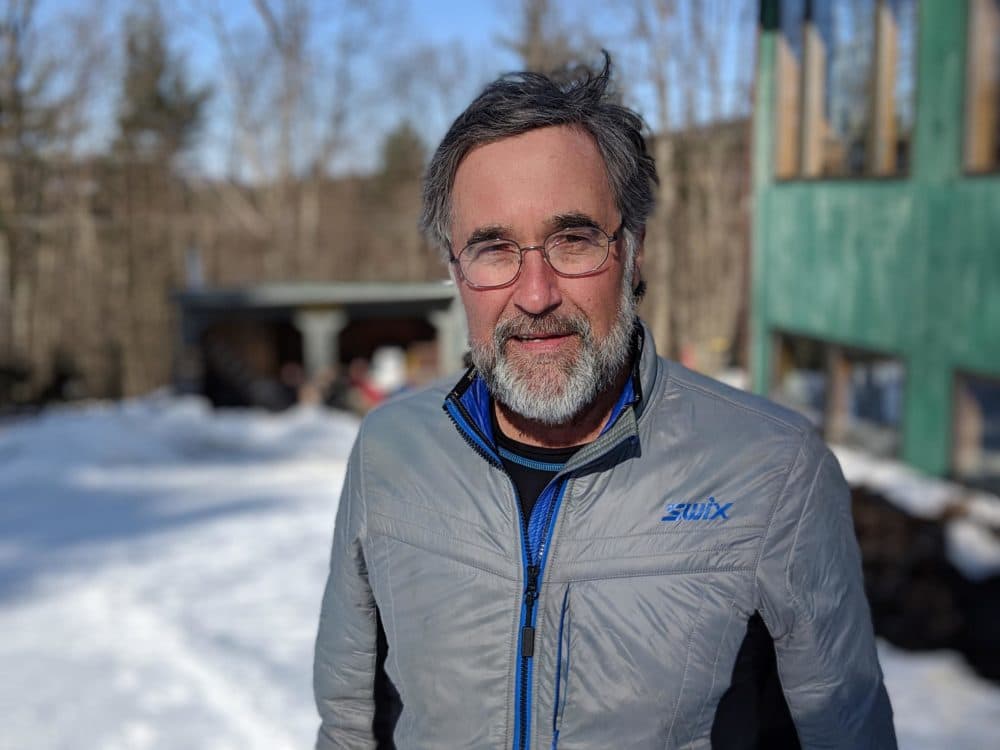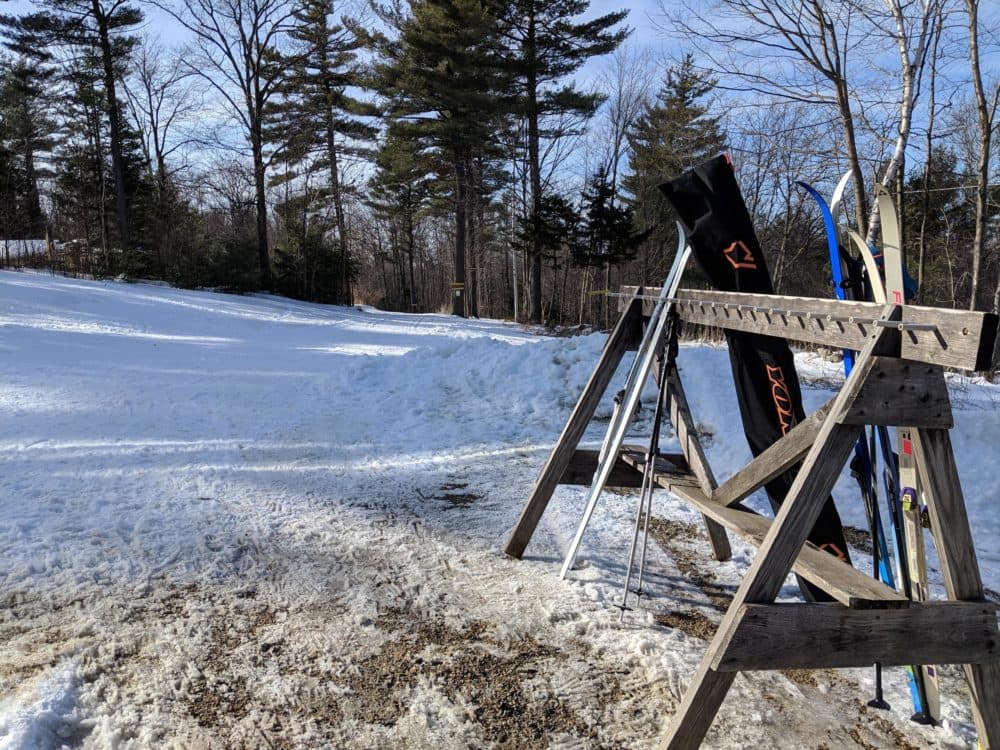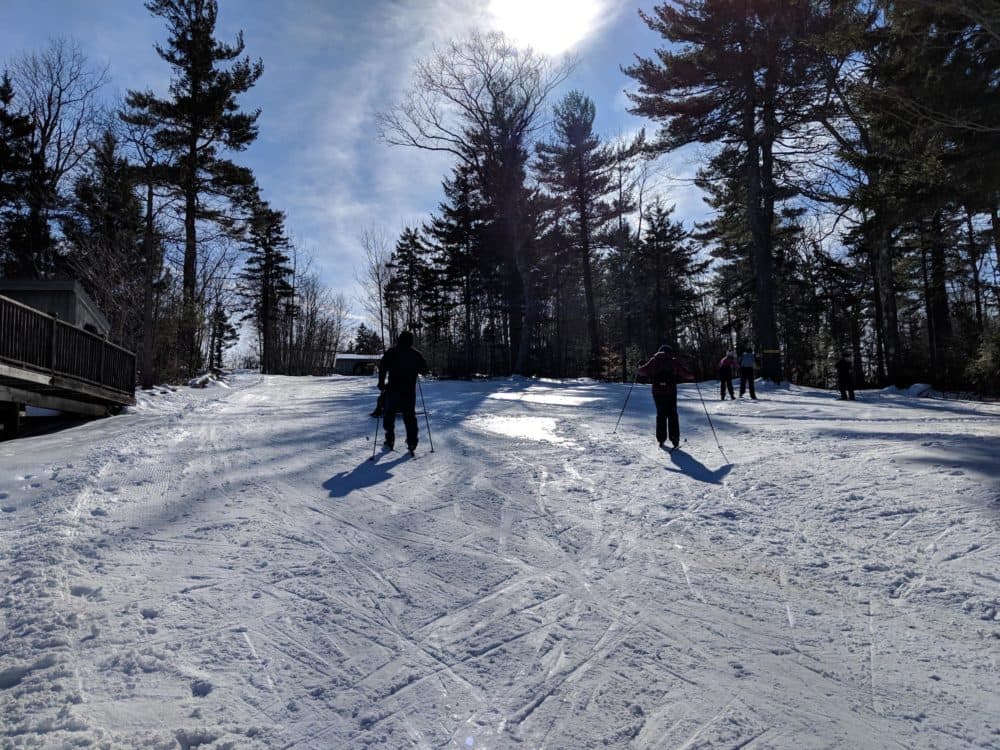Advertisement
Old-School Snow Sports Push Through 'Winter Whiplash' Of Climate Change
Resume
Melty weather has been a big problem for seasonal recreation in New Hampshire this winter — and it’s all part of a long-term warming trend.
As this season comes to an end, some of the region's favorite pastimes are preparing for an uncertain future.
Windblown Cross Country Skiing and Snowshoeing is tucked into the hills of New Ipswich, New Hampshire, not far from the Massachusetts border.
On a bright, brisk Friday in late February, the parking lot is thawing into mud — but the snowy trails that lead into the woods are crisp and freshly groomed.
Swooping in off one of them is Al Jenks, who's owned Windblown for almost 50 years.

Though conditions were good on this particular day, he says this has been one of his worst seasons ever. The frustration is with the rain and warmth, which keep melting away the base layer of snow that Jenks needs to groom into trails.
“If we hold onto this [base] and then get a few inches on top, then we’re in good shape," he says. "But if we don’t and we’re back to brown, then you gotta start all over again.”
As of late February, Windblown had only been open 16 days all winter. In a better year, that number could be 70 or 80.
Yo-Yo Effect
For what it's worth, Jenks did end up having a great March. And he's seen plenty of ups and downs like this over the years.
But he recognizes that these days, the downs are starting outnumber the ups.
"I believe in climate change. It's here — I've seen it in my 50 years living here," he says. "Winters are more condensed. It's just not as intense as I remember."
Jenks expects to retire soon, and he says anyone who buys his land would be wise to find a way to use it in the summer, too. For now, he believes Windblown will survive as long as he gets some good winters mixed in with the bad.
This uncertainty is gnawing at anyone who likes to play in the snow in New England.
Recent years have seen more frequent cancellations or delays for everything from pond hockey tournaments, to fishing derbies, to ski club events and even sled dog races.
"Any winter sport or winter event is somewhat in question," says Kit Morgan of the Tamworth Outing Club.
Their annual sled dog race was canceled the past few years. This year, they got lucky and managed to squeeze it in during a weekend cold snap.

'The Multimillion-Dollar Question'
This winter yo-yo effect has economic impacts, too.
Elizabeth Burakowski studies snow and the ski industry at the University of New Hampshire. She says the state saw a 30 percent drop in skier visits during the winter of 2016 — which, on average, was 6 degrees warmer than normal.
“If that’s a bad year and we’re looking at worse years to come, I don’t think that bodes well for the ski industry in Southern New Hampshire," Burakowski says.
The climate predictions are not quite as dire for the North Country, which relies heavily on ski industry revenue. In fact, as smaller, more southerly ski areas suffer, Burakowski says it could drive visitors to resorts up north — at least in the short term.
"The multimillion-dollar question is, are they going to continue to make that trek?" she asks. "Are people who grow up skiing in Connecticut still going to have that demand to learn if they still don’t even see snow in their backyards anymore?
"I think they’re going to have a feeder problem in terms of growing the next generation,” she says.

A New Normal
Back at Windblown, a handful of grade schoolers are horsing around at the trailhead, with sun sparkling off the groomed snow.
Nearby, Peggy Wozniak from Keene is unstrapping her snowshoes. She says she’s usually a cross-country skier.
"But it’s so limited this winter, we’ve done more snowshoeing just to get out," she says. "It’s a real challenge, because we get good snow, you go out for one day, and then the next day it freezes or it rains.”
The perfect conditions she went snowshoeing in today feel like they’re getting harder and harder to predict. But Wozniak is someone who'll always find a way to be outside in the winter — she loves it.
"Just the invigorating air, getting out in it. People who don’t are the ones who don’t like winter," she says. "And look at today — it’s beautiful! Blue skies, sun — it can’t be better than today.”
At this point, skiers like her are just hoping it doesn't get much worse.
This segment aired on March 24, 2019.